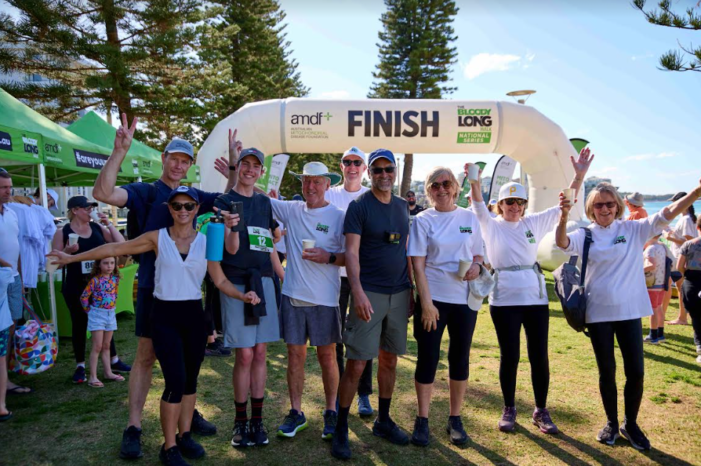Residents from the beautiful region of Sydney’s North will walk 35km this Sunday 30 July to raise funds for the Mito Foundation.
Walkers will get their first of many views of the Pacific Ocean on The Bloody Long Walk at the Palm Beach starting point, before following the coast and soaking up the winter sun and the seaside scenery along the way to the finish at Manly Promenade.
Mitochondrial disease (mito) is a debilitating, potentially fatal, genetic disorder that robs the body’s cells of the energy they need to function properly.
More than 1600 participants will walk for more than seven hours, clocking up nearly 47,000 steps, all in support of raising funds and awareness for Mito Foundation and its goal to end mito. Individuals and teams have already raised $235,000 for the cause.
Among the amazing walkers will be Margie and Doug Lingard, who will lead their ”Walking for Rose” team to honour the memory and bravery of their daughter Rose, who died from the disease in 2017. Her death followed that of her brother Alex more than 30 years earlier to “an unknown illness’’ – when Rose became ill, doctors told the Lingards they now believed Alex had been a victim of mito.
“Alex’s illness was always at the back of my mind. When our beautiful daughter, Rose, then 20, was found convulsing and unconscious by her flat mates, we knew, although we hoped we were wrong, that she had the same illness as Alex,” Margie Lingard said.
“After a phone call to one of Alex’s neurologists we were told that he had most likely died from a mitochondrial disorder. It was the first time we had heard the word, and when we googled it our hearts and hopes sank … an incurable illness for which there wasn’t even any treatment.”
Rose was on life support and in a coma for a long time after that initial bout of illness, but with incredible strength she learned to walk again and managed to claim back parts of her normal life.
“Rose’s determination, for which she deserved a medal, and outstanding medical support, gave her part of her life back. Her greatest wish was to be normal, get through a day without convulsions, and be like her friends. It broke our hearts to see her struggling and trying so hard but it’s also what motivated us then to find a cure for Rose, and still motivates us to find a cure for every other sufferer,” Margie Lingard said.
“Every dollar raised will help make a difference, in the hope that no other family experiences the loss of their loved ones to this devastating disease.”
To make a donation, please go to https://www.bloodylongwalk.
Mito Foundation CEO, Sean Murray, said the event is part of a nationwide initiative which supports families affected by mito.
He said walkers had extra inspiration to take on the 35km challenge in 2023 as the mito community prepares for a clinical trial to get underway in Australia for mitochondrial donation, an IVF technique. If successful, the program will enable women with certain forms of mito to have healthy children of their own.
This follows the passing of Maeve’s Law last year to pave the way for a clinical trial of mitochondrial donation, which Mr Murray said was just one part of the Foundation’s ongoing efforts to assist those impacted by the disease.
“There is so much more work to be done, including research that is critical to find other prevention strategies, treatments and cures,” Mr Murray said.
“Diagnosis is key to prevention strategies such as mitochondrial donation and while progress has been made, we are working to improve diagnosis rates through research and advocacy.
“The reality is around 70 Aussie kids each year will develop a life-threatening form of mito – that’s more than one baby born every week.
“Sadly, most children diagnosed with a serious form of mito die in the first five years of their life. Our ambition is to prevent as many children as possible from suffering from this life-threatening disease and to reduce the burden of mito on families and the community.”
It is estimated that 1 in 200 people, or more than 130,000 Australians may carry the genetic change that puts them at risk of developing mito or passing it on to their children.


You must be logged in to post a comment Login